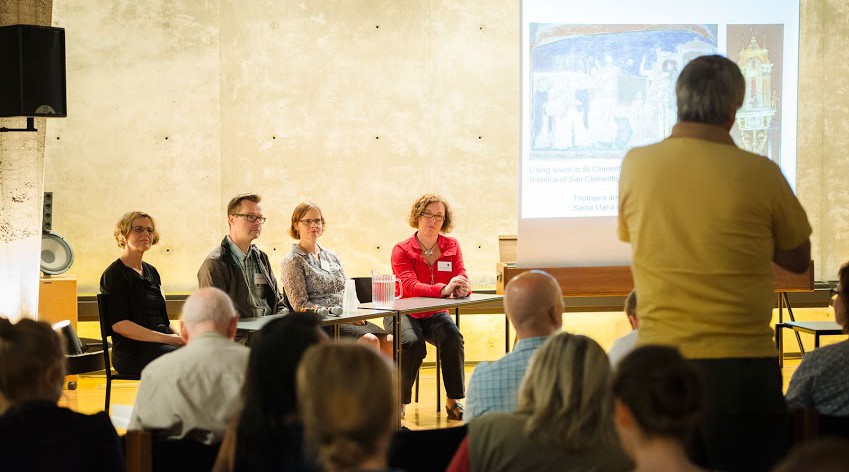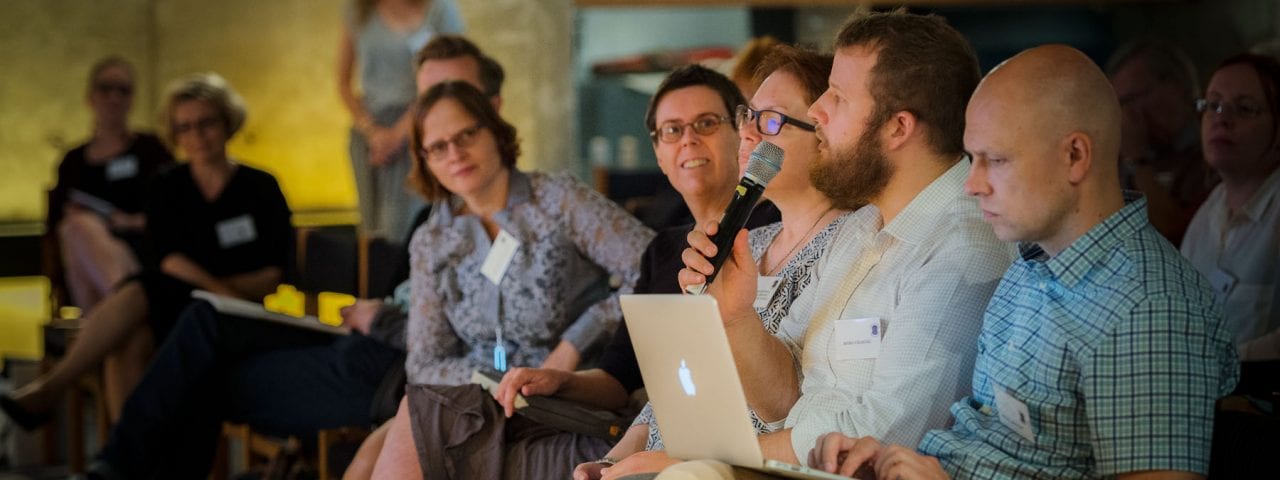Feast of St. Thomas Aquinas and Sensory Experience
Touching, Tasting, Hearing, Seeing and Smelling. Sensory Experiences in the Feasts of St Thomas Aquinas was a joint research and artistic project with a strong multidisciplinary approach, active in 2015–2019. A culture historian, musicologist and Latin philologist investigated medieval lyrics and notations of Saint Thomas Aquinas’s feasts and analyzed the perception of the Saint through the spatial, musical and linguistic emphasis in his festivities.
The project has also provided chanting workshops in schools, congregations, conferences and at public events, and the investigators have given open lectures on the subject. One element of the project has been concerts in Finland and abroad performed by Vox Silentii, who also released a CD in August 2016: Felix Thomas lumen mundi. Medieval chants for the feasts of Thomas Aquinas. The members of the project were Marika Räsänen, the Primary Investigator, Associate Investigators Hilkka-Liisa Vuori, Seppo Heikkinen, and Johanna Korhonen, Singer of Gregorian chants in the duo Vox Silentii. In the beginning the group also included Antti Lampinen. The project was funded by the Kone Foundation.
The combining the academic research, medieval studies and performance art was at the core of the project. See a video!

The Project Members

Marika Räsänen (PhD in Cultural History) is a medievalist who has studied the cults of saints and especially the cult of Saint Thomas Aquinas in the Late Middle Ages. She currently works as University Teacher at the Department of Cultural History, University of Turku. Her research interests include the early Dominican reforms and the Reformation, the devotional culture of the laity and the cults of relics in late medieval Europe. Among her most recent publications are a monograph Thomas Aquinas’s Relics as Focus for Conflict and Cult in Late Middle Ages: The Restless Corpse,Amsterdam University Press 2017, and an edited volume: Relics, Identity, and Memory in Medieval Europe (edited jointly with Gritje Hartmann and Jeffrey Richards), Brepols 2016.
Hilkka-Liisa Vuori (Doctor of Music) is a singer and a researcher in medieval music. She teaches Gregorian chant in the Sibelius Academy, Helsinki, and in the Kallio congregation, Helsinki. Vuori has specialized in medieval Bridgettine chants, her most recent publications on the subject being an edited chant book Cantus sororum, Vox Silentii and The Catholic Information Centre, Catholic Church in Finland 2015, an article An Ode to Petrus of Skänninge, in Continuity and Change: Papers from the Birgitta Conference at Dartington 2015, Kungliga Vitterhets Historie och Antikvitets Akademin 2017, and another article Birgittinsystrarnas sånger och forskningen kring dessa, in Nådendal – Vallis Gratiae Finlands Birgittakloster, Runica et Mediævalia 2018.
Seppo Heikkinen (PhD in Latin language) has specialized in Late Latin and Medieval Latin metrics and poetic diction. His research has discussed the transition of the Graeco-Latin poetic heritage into the Middle Ages and its manifestations in medieval verse. His doctoral thesis was on the Venerable Bede’s De arte metrica (“On the art of metrics”) and he has written several articles on the application of the classical poetic tradition in medieval Latin poetry.
Antti Lampinen (PhD in Latin language) has studied emotive language in ancient descriptions of religious cults, as well as ancient ethnographical writing. For more information, see Antti’s page on Academia.edu
Johanna Korhonen is a singer in duo Vox Silentii and a professional journalist specialized on societal issues.
Established in 1992, Vox Silentii teaches and studies medieval chants. Its repertoire is liturgical music, and therefore a prayer in voice and song. The silence included in the ensemble’s name (Vox Silentii – The sound of silence) refers not only to silence as starting point for all music but to the silence of the heart – a space for listening, a prayer. For more information, visit the page Vox Silentii.

